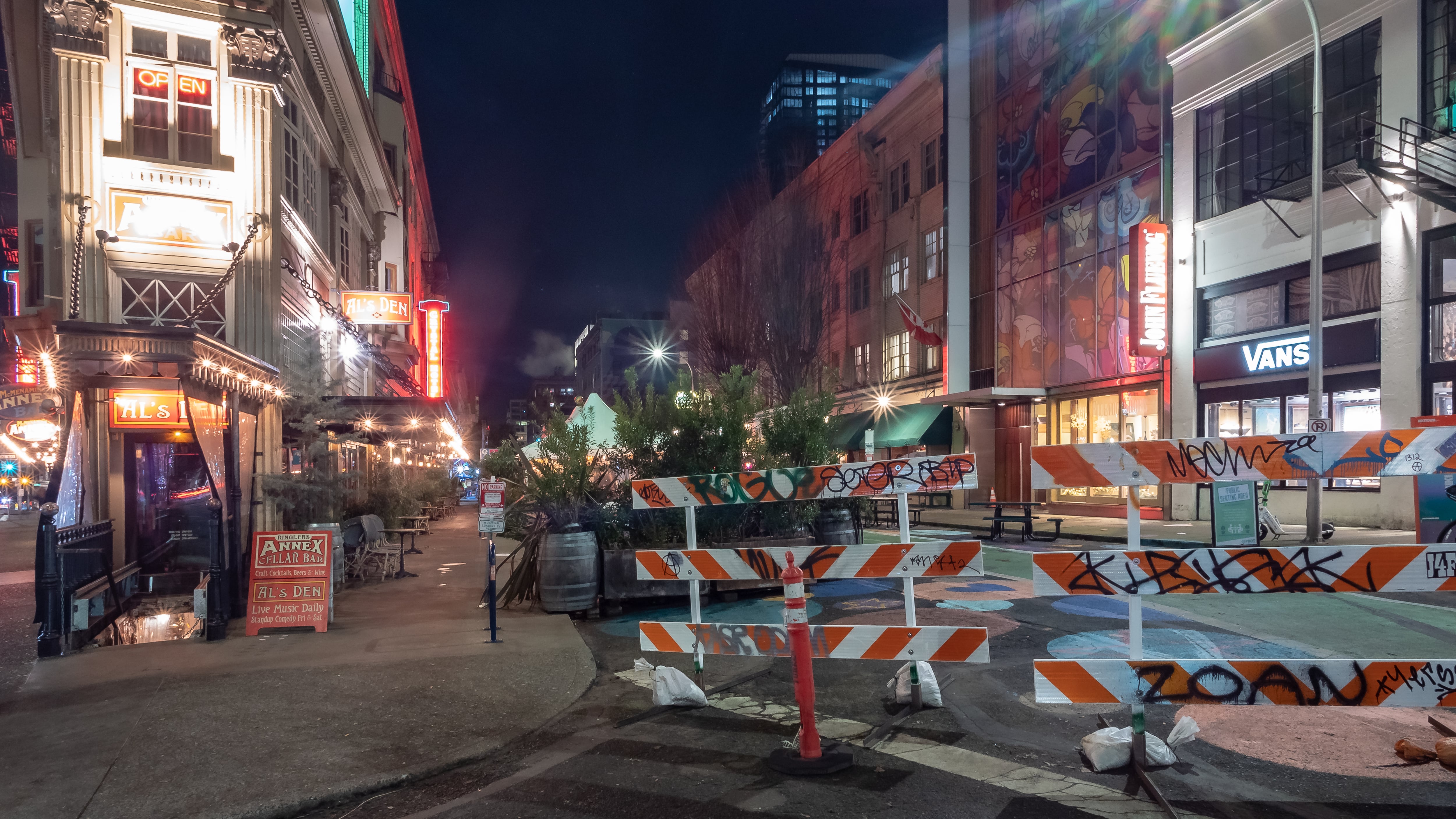Portland’s West End is the latest stage for a conflict that longtime city residents can recite from memory (“Won’t You Be My Neighbor?” WW, March 1). The opening of a day center for people living on the streets has attracted drug dealing and violence to the surrounding streets, alarming local shopkeepers. What’s different about this site is it’s in the center of a burgeoning hotel district—including the soon-to-open Ritz-Carlton—and the street activity threatens the efforts of business leaders to jump-start a moribund downtown. Here’s what our readers had to say:
I_am_become_pizza, via Reddit: “Feels like the same story is played out over and over with services like this. “Good intentions establish services that inevitably attract a subset of bad actors. Bad actors make an outsized negative impact in the neighborhood.
“Service centers have no ability to deal with them, and believe their mission is more important than their neighbors, so they just deflect.
“Happens with free fridges, shelters, service centers, safe rest villages, etc.
“I’m not sure what the solution is, but the current MO of sacrificing neighbors’ quality of life and then taking a holier-than-thou attitude when someone complains is getting pretty old.”
Roy Hemmingway, via wweek.com: “This is another case of local officials having contempt for the people and businesses that provide the jobs in Portland. In the end, we will be left with a hollowed-out downtown that looks like Lloyd Center. No sane business person would open a business downtown today, what with the lack of attention the city pays to downtown’s problems.”
Kurt Chapman, via wweek.com: “When we travel we rarely pay over $300 a night for a hotel room. Can tell you right now what the operators of the Ritz are going to find when they go to collect empirical data. People in general are not going to pay $518 a night to stay anywhere near downtown Portland. They also will cancel any reservations once they discover they are in the same building with addicts and the chronically homeless. As for selling those overpriced condos? Good luck.”
Homer, via wweek.com: “For a city that prides itself on being pedestrian and bike friendly, I am forever amazed that I’ve yet to see an officer walking or riding a beat. Instead, I see them cruising around town in massive SUVs with the windows up. Maybe that’s fine in suburbanlike areas, but not in the inner core of town.”
pdxswearswolf, via Reddit: “If you’ve ever been to Vancouver, B.C., you may have already experienced a preview of what’s likely to become of this area. For those who haven’t been, Vancouver’s downtown is a really lovely, vibrant place right up until you get to East Hastings. Once you cross over, it’s an entirely different place. The buildings are noticeably more decrepit, the sidewalks and alleyways are lined with tents, and the storefronts are mostly closed except for the harm reduction services. People mill around in various states of opiate use, and overdoses are so common that some of the harm reduction centers have spotters stationed outside watching for people who might be experiencing one. This is the epicenter of Canada’s opioid addiction, and it’s been at the forefront of the harm reduction model for decades. It was one of the first cities in North America to open needle exchanges, safe consumption sites, and other low- or no-barrier services for the addicted population.
“The existence of these services didn’t create this environment; rather they sprung up to address an existing need much like the center mentioned in this article. However, their presence has cemented the area, and Vancouver in general, as the sinkhole for Canada’s addiction crisis. People come to Vancouver from all over Canada to access both these services and the drugs available there.
“Vancouver’s more tourist-friendly parts of downtown have managed to mostly coexist with these services, but there is a key difference: The area where these services exist doesn’t overlap with the tourist area, so while it’s there, travelers can easily avoid it. That’s not going to be the case with the center described in this article, and for better or worse, Portland doesn’t partake in the commonly used containment strategy that other cities use to separate their homeless population from the tourists. So, I think it’s likely that this center is going to have a negative impact on the neighborhood and Portland’s downtown economy in general.
“This presents a really sticky set of moral conundrums. How much of our local economy can we afford to sacrifice to better serve our homeless and addicted populations? If we sacrifice a lot, and we end up displacing more jobs, are we feeding the crisis we’re trying to address? Would we be better off following the containment model that other cities do to keep our tourism economy going? I don’t know. But I think we’re going to have to try to come up with a unified strategy if we’re going to successfully integrate services like the one in this article into the city as a whole.”
LETTERS to the editor must include the author’s street address and phone number for verification. Letters must be 250 or fewer words. Submit to: P.O. Box 10770, Portland OR, 97296 Email: mzusman@wweek.com
